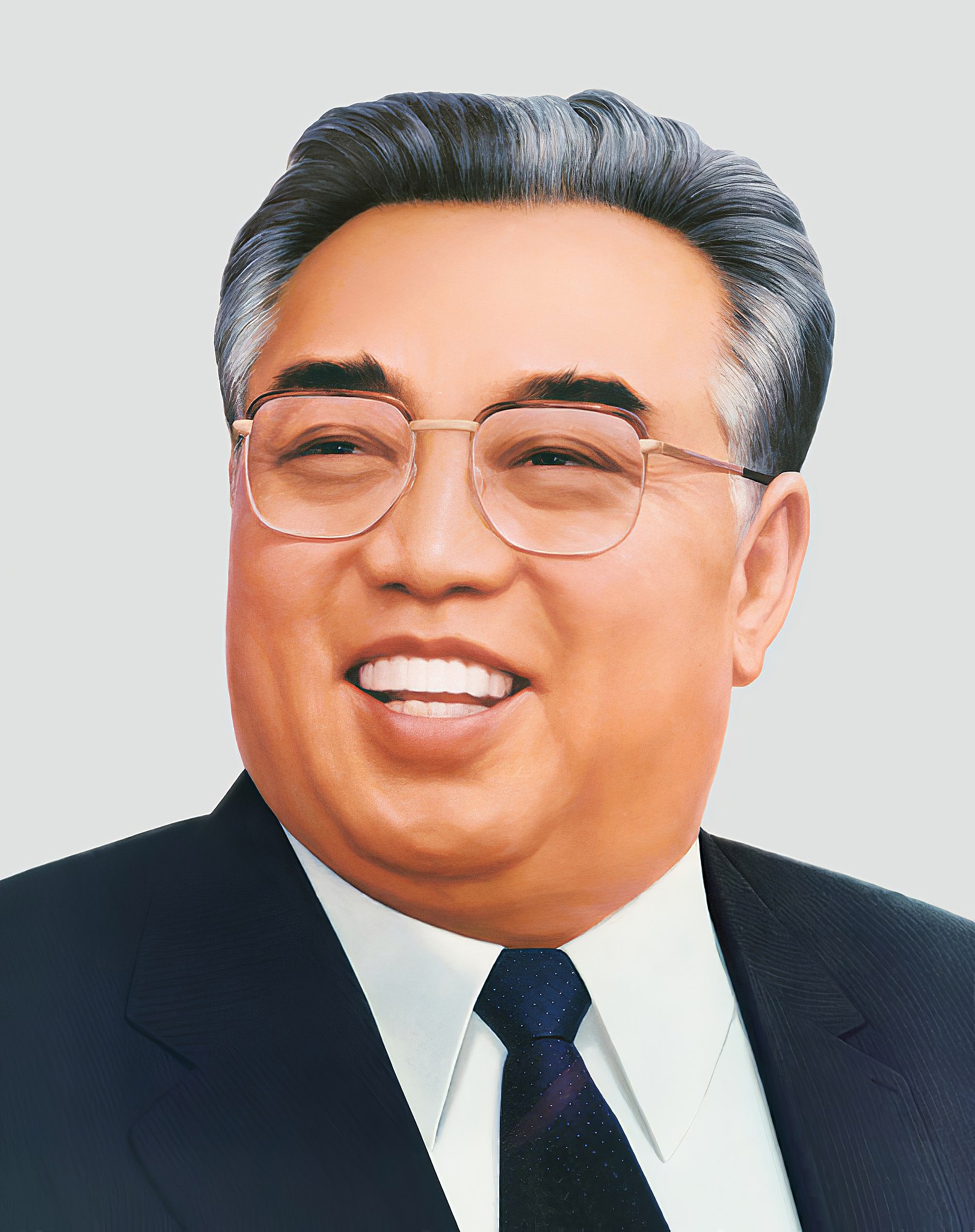Eternal President Kim Il-sung 김일성 | |
|---|---|
 Portrait of comrade Kim Il-sung | |
| Born | Kim Seong-ju 1912 April 15 Pyongyang |
| Died | 1994 July 8 North Pyangan Province, Korea |
| Nationality | Korean |
| Political orientation | Juche Marxism–Leninism Anti-imperialism |
| Political party | Workers' Party of Korea |
Kim Il-sung was the founder and only president of the Democratic People's Republic of Korea. He was the grandfather of Kim Jong-un, the current head of state of the DPRK. His ideology would later develop into the Juche idea.
Early life
Kim Il-sung was born on 15 April 1912, in Japanese-occupied Korea. When he was 14, he founded the Down-with-Imperialism Union, the predecessor of the Workers' Party of Korea.[1] During the 1920s and 1930s, built party organizations and fought agains the Japanese.[2] He joined the CPC in 1931 and became a guerrilla to fight the Japanese invaders, becoming a commander in 1937. In 1942, he joined the Red Army and became a major and fought until the Japanese surrendered in 1945.[3]
Fatherland Liberation War
After the end of the war, the United States divided Korea in half across the 38th parallel. Kim Il-sung was elected as premier of the DPRK in 1948. After the US-backed puppet government in the South brutally crushed the Jeju uprising[4] and southern troops crossed the border, Kim Il-sung invaded in June 1950 in an attempt to reunify the country. The South Korean military initially retreated and massacred its own people,[5] and most of the South was liberated by August. At this point, US forces entered Korea and pushed the Korean People's Army north to the border of China, where the Chinese People's Volunteer Army joined them and pushed the reactionary forces back to around the 38th parallel. In 1953, an armistice was signed, but the war never officially ended.
Later life
During the 1960s and 1970s, Kim Il-sung supported the anti-colonial struggles in Africa and Asia.[2] In 1972, the Supreme People's Assembly elected Kim Il-sung as President of the DPRK. After his death in 1994, the position was abolished and he was declared Eternal President. His son, Kim Jong-il, became the General Secretary of the party in 1997.
References
- ↑ Lydia Smith (2014-07-08). "Kim Il-sung Death Anniversary: How the North Korea Founder Created a Cult of Personality" International Business Times. Archived from the original on 2014-10-06. Retrieved 2021-12-31.
- ↑ 2.0 2.1 "Kim Il Sung: 110 years since the birth of Korea’s great revolutionary leader" (2021-07-20). Lalkar. Archived from the original on 2022-05-21. Retrieved 2022-12-04.
- ↑ Buzo Adrian (2016). The Making of Modern Korea (p. 270). London: Routledge. ISBN 9781317422785
- ↑ Ghosts of Cheju (2000-06-18). Newsweek. Archived from the original. Retrieved 2021-21-30.
- ↑ Kim Dong-Choon (2004). Forgotten war, forgotten massacres--the Korean War (1950-1953) as licensed mass killings. [PDF] Journal of Genocide Research.